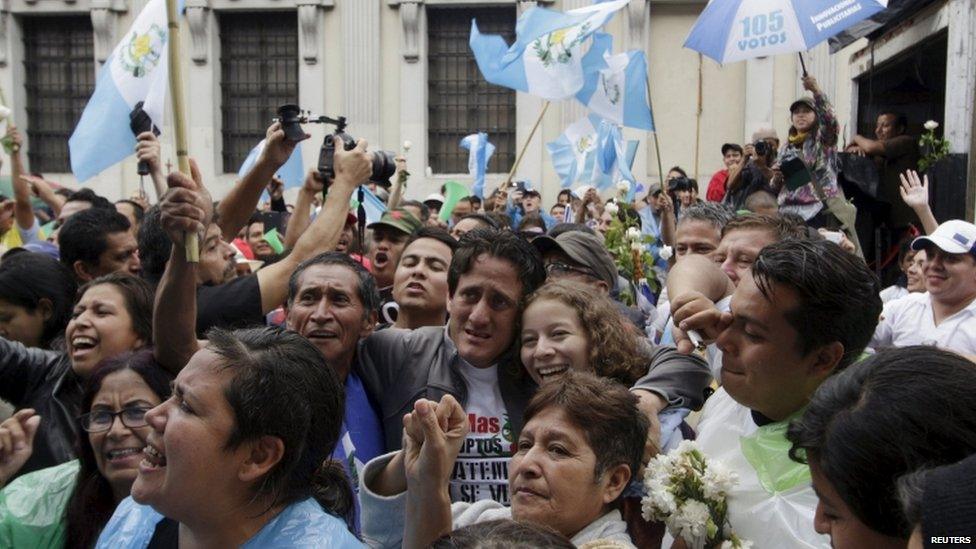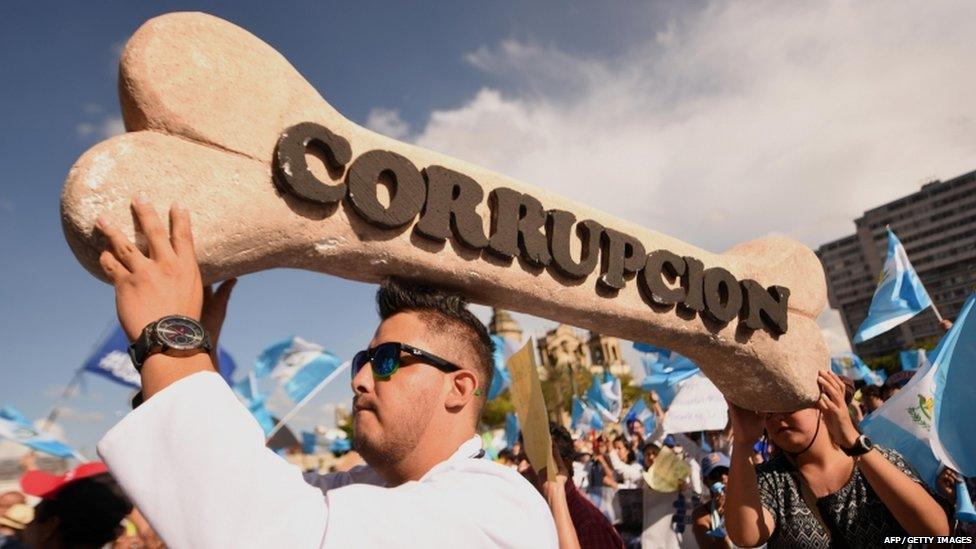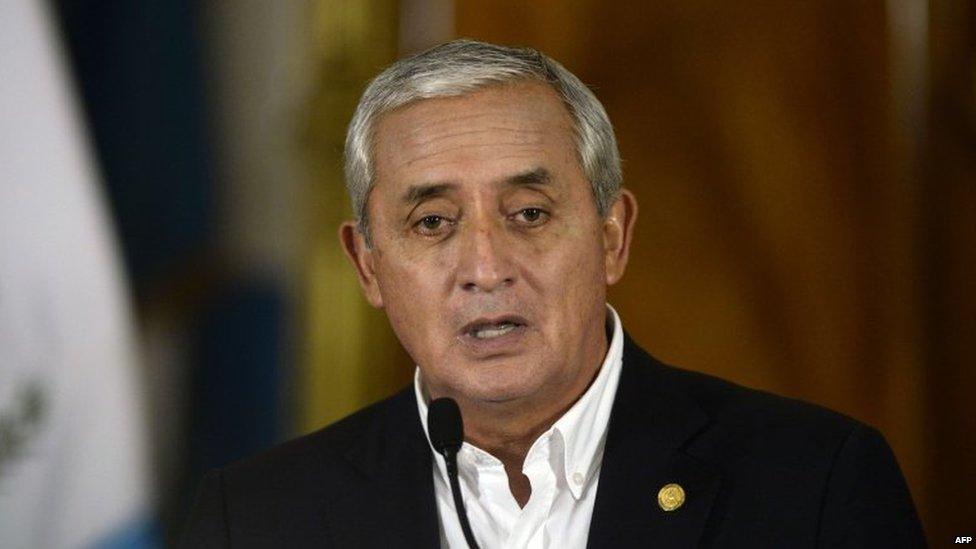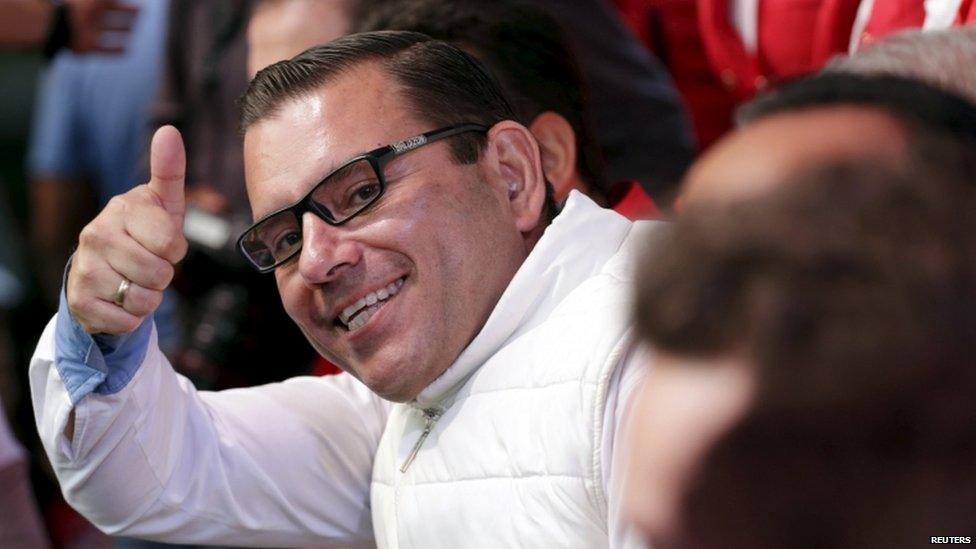Guatemalans vote amid political turmoil
- Published

Guatemalans want corruption tackled at all levels
More than 7.5 million Guatemalans over 18 are eligible to vote in Sunday's presidential and parliamentary elections, but many may choose to abstain because of their anger over high-level corruption.
The polls come just as a campaign to remove the incumbent president, Otto Perez Molina, for alleged corruption has culminated in his resignation.
Mr Perez Molina stepped down on Wednesday night after a federal judge issued a warrant for his arrest in the wake of Congress stripping him of immunity from prosecution.
He continues to deny the charges, which relate to a massive customs duties fraud.

Will the corruption scandal affect the elections?

Protesters celebrated after Otto Perez Molina's immunity was lifted
Guatemalan newspaper elPeriodico, external believes so and speaks of a "climate of uncertainty and discontent".
Daily Siglo Veintiuno, external predicted a high number of abstentions caused by "people's weariness with a political class that they describe as 'corrupt'".
And it is not just the corruption scandal which triggered the resignations of the president and the vice-president they are concerned about.
According to findings published by the UN-backed International Commission Against Impunity in July, some of the main contenders in the forthcoming elections have benefited from illicit funds and have ties to drug-trafficking and money-laundering groups.
But Guatemalan daily Prensa Libre, external is hopeful that the fact that Congress stripped Mr Perez Molina of his immunity will encourage a higher voter turnout, "as a sign of confidence in the system".

What are the other issues?

President Perez Molina came to power in 2012 "on a promise of security".
Among other things, he promised zero tolerance for crime, the creation of maximum-security prisons and a professional police force.
"But little or nothing has been achieved," according to Guatemalan daily La Hora, with crime rife and convicted criminals continuing to operate from behind bars.
The police force remains poorly trained and ill-equipped. There has been little progress in reforming it, partly due to corruption.
The poor living conditions of Guatemala's indigenous peoples, wide-spread poverty and the reform of the electoral process are also important issues.

Who are the leading candidates?

Manuel Baldizon has been leading in the polls
There are 14 presidential candidates but Manuel Baldizon from the centre-right Renewed Democratic Freedom party (Lider) has been leading the polls in the final week.
However, his chances may be hampered by his choice of running mate, Edgar Barquin.
Mr Barquin was recently stripped of his parliamentary immunity over allegations of money laundering.
Mr Baldizon describes himself as "a true believer in private property, the honest generation of wealth, the free market, free competition, employment generation".
His nearest rival is actor Jimmy Morales, who opposes same-sex marriage, abortion and the legalization of drugs.
Opinion polls suggest that no candidate will receive the more than 50% of the total vote needed to win in the first round.
if a runoff is necessary, it will be held on 25 October.
BBC Monitoring, external reports and analyses news from TV, radio, web and print media around the world. You can follow BBC Monitoring on Twitter , externaland Facebook, external.